
Peyton Randolph was an American politician and planter who was a Founding Father of the United States. Born into Virginia's wealthiest and most powerful family, Randolph served as speaker of Virginia's House of Burgesses, president of the first two Virginia Conventions, and president of the First Continental Congress. He also served briefly as president of the Second Continental Congress.

Stow is a town in Middlesex County, Massachusetts, United States. The town is located 21 miles (34 km) west of Boston, in the MetroWest region of Massachusetts. The population was 7,174 at the 2020 census. Stow was officially incorporated in 1683 with an area of approximately 40 square miles (100 km2).
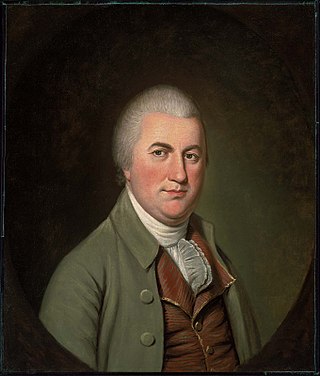
Nathaniel Gorham was an American Founding Father, merchant, and politician from Massachusetts. He was a delegate from the Bay Colony to the Continental Congress and for six months served as the presiding officer of that body under the Articles of Confederation. He also attended the Constitutional Convention, served on its Committee of Detail, and signed the United States Constitution.
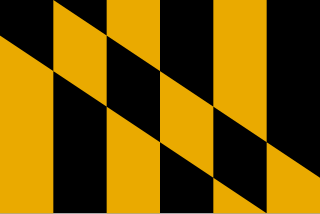
The Annapolis Convention was an Assembly of the Counties of Maryland that functioned as the colony's provincial government from 1774 to 1776 during the early days leading up to the American Revolution. After 1775, it was officially named the Assembly of Freemen.

The Province of Massachusetts Bay was a colony in New England which became one of the thirteen original states of the United States. It was chartered on October 7, 1691, by William III and Mary II, the joint monarchs of the kingdoms of England, Scotland, and Ireland, and was based in the merging of several earlier British colonies in New England. The charter took effect on May 14, 1692, and included the Massachusetts Bay Colony, the Plymouth Colony, the Province of Maine, Martha's Vineyard, Nantucket, Nova Scotia, and New Brunswick; the Commonwealth of Massachusetts is the direct successor. Maine has been a separate state since 1820, and Nova Scotia and New Brunswick are now Canadian provinces, having been part of the colony only until 1697.

The committees of correspondence were a collection of American political organizations that sought to coordinate opposition to British Parliament and, later, support for American independence during the American Revolution. The brainchild of Samuel Adams, a Patriot from Boston, the committees sought to establish, through the writing of letters, an underground network of communication among Patriot leaders in the Thirteen Colonies. The committees were instrumental in setting up the First Continental Congress, which convened in Philadelphia in September and October 1774.

Samuel Holten was an American Founding Father, physician, jurist, and politician from Danvers, Massachusetts. Holten represented the Massachusetts Bay Colony as a delegate to the Continental Congress, where he signed the Articles of Confederation. After numerous roles at the state and national levels in the 1780s, Holten was elected to a term in U.S. House of Representatives, serving from 1793 to 1794. He then was appointed judge in the local courts, a position he held for nearly two decades.

Jonathan Jackson was an American businessman and politician from Newburyport, Massachusetts. He was most notable for his service as a delegate from Massachusetts in the Continental Congress in 1782, the first United States Marshal for the District of Massachusetts from 1789 to 1791, and Treasurer and Receiver-General of Massachusetts from 1802 to 1806.

William Shepard was a United States representative from Massachusetts (1797–1802), and a military officer in the Continental Army during the American Revolutionary War. As a state militia leader he protected the Springfield Armory during Shays' Rebellion, firing cannon into the force of Daniel Shays and compelling them to disperse. He also served in town and state government and was a member of the Massachusetts Governor's Council.

Abijah Bigelow was a U.S. Representative from Massachusetts.

The Massachusetts Provincial Congress (1774–1780) was a provisional government created in the Province of Massachusetts Bay early in the American Revolution. Based on the terms of the colonial charter, it exercised de facto control over the rebellious portions of the province, and after the British withdrawal from Boston in March 1776, the entire province. When Massachusetts Bay declared its independence in 1776, the Congress continued to govern under this arrangement for several years. Increasing calls for constitutional change led to a failed proposal for a constitution produced by the Congress in 1778, and then a successful constitutional convention that produced a constitution for the state in 1780. The Provincial Congress came to an end with elections in October 1780.

The Petition to the King was a petition sent to King George III by the First Continental Congress in 1774, calling for the repeal of the Intolerable Acts. The King's rejection of the Petition, was one of the causes of the later United States Declaration of Independence and American Revolutionary War. The Continental Congress had hoped to resolve conflict without a war.

Samuel Prentiss was an associate justice and chief justice of the Vermont Supreme Court, a United States senator from Vermont and a United States district judge of the United States District Court for the District of Vermont.
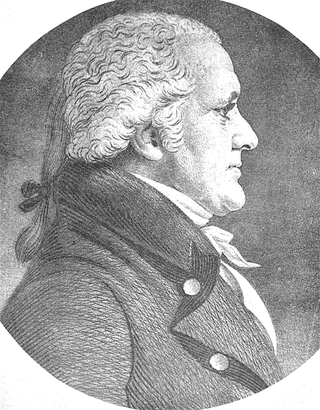
Perez Morton was an American lawyer, politician and revolutionary patriot in Boston, Massachusetts. He was Massachusetts Attorney General from 1810 until 1832.
Thomas Gardner was an Overseer of the "old planters" party of the Dorchester Company who landed in 1624 at Cape Ann to form a colony at what is now known as Gloucester. Gardner is considered by some to have been the first Governor of Massachusetts, due to his being in authority in the first settlement that became the Massachusetts Bay Colony.

William Coolidge Lane was an American librarian and historian. He served for over 45 years in the Harvard Library at Harvard University in Cambridge, Massachusetts.
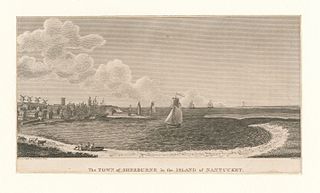
The citizens of Nantucket during the American Revolutionary War era relied on whaling, industries that supported whaling, and the trade in oil that resulted from that industry. Because most of this trade was with England, the leading citizens of Nantucket chose to be neutral during the American Revolutionary War, siding neither with those who supported revolution nor with the British Crown, in order to maintain the viability of the island's economy. The Quaker culture of pacifism was a secondary cause of the island's non-participation in revolutionary activities.
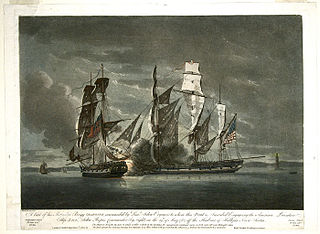
The Province of Nova Scotia was heavily involved in the American Revolutionary War (1775–1783). At that time, Nova Scotia also included present-day New Brunswick until that colony was created in 1784. The Revolution had a significant impact on shaping Nova Scotia, "almost the 14th American Colony". At the beginning, there was ambivalence in Nova Scotia over whether the colony should join the Americans in the war against Britain. Largely as a result of American privateer raids on Nova Scotia villages, as the war continued, the population of Nova Scotia solidified their support for the British. Thousands of Loyalist refugees fled to Nova Scotia during the war, and many were resettled in the region after the signing of the 1783 Treaty of Paris as "United Empire Loyalists".
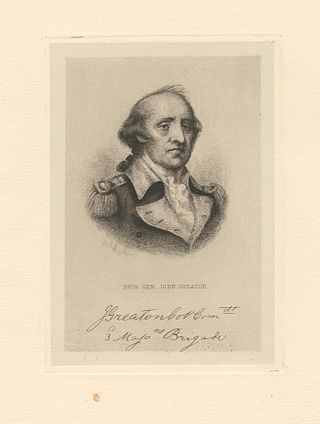
John Greaton, Jr. was an American inn-keeper and military leader from Roxbury, Massachusetts who served as a brigadier general in the Continental Army during the American Revolutionary War.

















